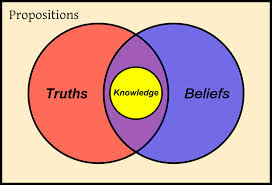epistemology
英 [ɪˌpɪs.təˈmɒl.ə.dʒi]
美 [ɪˌpɪs.təˈmɑː.lə.dʒi]
- n. 认识论
星级词汇:

记忆方法
记住“epistemology”这个单词可以通过分解法:
1. “epi-”是前缀,表示“关于”或“在...之上”。
2. “-logo-”来源于希腊语,意味着“研究”或“学科”。
3. “-ology”是后缀,表示“学科”或“学”。
将这三个部分结合起来,可以记住“epistemology”是关于知识或认识论的学科。即,它是研究知识的本质、起源、结构、获得和验证的理论。
1. “epi-”是前缀,表示“关于”或“在...之上”。
2. “-logo-”来源于希腊语,意味着“研究”或“学科”。
3. “-ology”是后缀,表示“学科”或“学”。
将这三个部分结合起来,可以记住“epistemology”是关于知识或认识论的学科。即,它是研究知识的本质、起源、结构、获得和验证的理论。
以上内容由AI生成, 仅供参考和借鉴
中文词源
epistemology 认知论
来自epistemic, 认知的。
英语词源
- epistemology (n.)
- "theory of knowledge," 1856, coined by Scottish philosopher James F. Ferrier (1808-1864) from Greek episteme "knowledge, acquaintance with (something), skill, experience," from Ionic Greek epistasthai "know how to do, understand," literally "overstand," from epi "over, near" (see epi-) + histasthai "to stand," from PIE *sta- "to stand" (see stet). The scientific (as opposed to philosophical) study of the roots and paths of knowledge is epistemics (1969). Related: Epistemological; epistemologically.
权威例句
- 1. Epistemology is the theory of knowledge.
- 认识论是关于认识的理论.
- 2. Traditionally, philosophy has been partitioned into three areas: epistemology, metaphysics, and value theory.
- 哲学在传统上分为三个领域: 认识论 、 形而上学和价值理论.
- 3. What kind of 15 year - old reads Buddhist epistemology?
- 什么样的15岁孩子会阅读佛教认识论?
- 4. Justification of epistemology can be broadly divided into foundationalism and conheretism.
- 认识论的辩护主要分为基础主义和融贯主义.
- 5. Zhuangzi's epistemology and positivism are combined with each other.
- 庄子的认识论和实践论是一而二、二而一的.